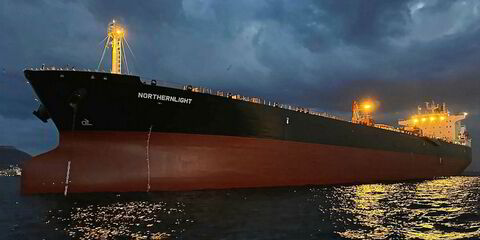Itsays containership capacity scrapped in the first four months of 2014 reached 212,000-teu, or 27% more than a year ago.
“Although the pace of scrapping is expected toslow down in the next three months due to the traditionally stronger demand inthe summer peak shipping season, full year deletions are still on track toreach a new annual record,” Alphaliner said.
Itforecasts that total deletions are expected to approach 500,000-teu this year –a level comparable to the 463,000-teu seen in 2013.
“Therecord scrapping rate is driven by the unprecedented number of deletions ofvessels of above 4,000-teu,” Alphaliner said.
Some34 units of between 4,000 and 5,300-teu are reported to have already beenscrapped in the last four months alone, compared to 18 units in the whole of2013 and 13 units in all previous years before that.
“Atleast a dozen additional ships of this size are expected to be broken up beforethe end of this year,” the Paris-based company said.
Alphalinersaid the average age of the vessels scrapped this year is also expected toreach an all time low.
“Historically,the average age for containerships scrapping stood at 28 years during theperiod between 2000 and 2011.
“In2012, the average age of scrapping fell to 23 years and slipped further to 22years in 2013.
“Ofthe 70 vessels scrapped so far this year, their average age has fallen furtherto 21 years, with the larger vessels of over 4,000-teu being scrapped at aneven younger 20 years.”
Alphalinersaid the scrapping of under-aged ships of above 4,000-teu has been led byHanjin Shipping, COSCO and Maersk Line, which accounted for 23 of the 34 unitsscrapped so far this year.
“Hanjinhas already sent nine ships of 4,024-teu and 5,302-teu for scrap this year,with three more units due to follow in the next few months,” it said.
“COSCO has also sent five units of 4,200-teu forscrap, while Maersk had earlier reached an agreement with German owners toreturn nine 4,200-teu units and five 3,600-teu units some two years before theexpiry of their charter contracts, with all 14 units subsequently scrapped.”



